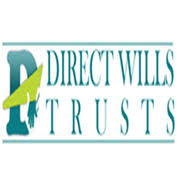According to a new report by Expert Market Research titled, “Precision Oncology Market Size, Share, Analysis, Report and Forecast 2024-2032″, In the relentless battle against cancer, precision oncology emerges as a beacon of hope, revolutionizing the landscape of cancer treatment. With the global precision oncology market surging ahead, valued at USD 107.82 billion in 2023 and projected to reach a staggering USD 250.11 billion by 2032, it’s crucial to delve deep into its dynamics, trends, segmentation, growth factors, recent developments, and competitor analysis. Let’s embark on a journey through the intricate web of this transformative market.
Precision Oncology Market Overview
Precision oncology represents a paradigm shift in cancer treatment, fueled by its growing recognition as a reliable therapeutic approach worldwide. By leveraging advanced technologies and genomic insights, precision oncology tailors treatment strategies to individual patients, maximizing efficacy while minimizing adverse effects. This personalized approach holds the promise of more effective cancer management, offering renewed hope to patients and clinicians alike.
Precision Oncology Market Dynamics
The dynamics propelling the global precision oncology market are multifaceted. Factors such as increasing cancer prevalence, advancements in genomic profiling, rising demand for targeted therapies, and growing investments in oncology research are driving market growth. Moreover, shifting regulatory landscapes and evolving reimbursement policies further shape the trajectory of precision oncology adoption globally.
Precision Oncology Market Trends
Several external trends are reshaping the landscape of precision oncology. The rise of artificial intelligence and machine learning is revolutionizing data analysis, facilitating more accurate patient stratification and treatment selection. Additionally, the integration of telemedicine and digital health platforms is enhancing patient access to precision oncology services, particularly in remote or underserved regions.
Request a free sample copy in PDF or view the report summary – https://www.expertmarketresearch.com/reports/precision-oncology-market/requestsample
Precision Oncology Market Segmentation
The market segmentation of precision oncology is nuanced, reflecting the diverse approaches and technologies employed in cancer care. Segments may include genomic profiling services, targeted therapeutics, companion diagnostics, and molecular diagnostics. Furthermore, precision oncology encompasses a wide range of cancer types, each requiring tailored treatment strategies based on its unique genomic characteristics.
Precision Oncology Market Growth
The growth trajectory of the global precision oncology market is marked by steady expansion, driven by ongoing research and technological advancements. With a projected compound annual growth rate (CAGR) of 9.80% during the forecast period of 2024-2032, the market is poised to witness remarkable proliferation. This growth is underpinned by increasing investments in precision medicine initiatives and the growing adoption of genomic-driven approaches in clinical practice.
Recent Developments in the Precision Oncology Market
Recent developments in the precision oncology landscape underscore the rapid pace of innovation in this field. Notable advancements include the emergence of liquid biopsy technologies for non-invasive cancer detection, the development of novel targeted therapies and immunotherapies, and the integration of multi-omic data for comprehensive cancer profiling. Moreover, strategic partnerships and collaborations among key industry players are fostering the development of integrated precision oncology solutions.
Precision Oncology Market Analysis
A comprehensive analysis of the global precision oncology market reveals its multifaceted nature and immense potential. Key features of market reports include patent analysis, grants analysis, clinical trials analysis, funding and investment analysis, and partnerships and collaborations analysis by leading key players. Such insights provide valuable guidance to stakeholders, informing strategic decision-making and resource allocation.
Competitor Analysis
Thermo Fisher Scientific Inc.: A leading provider of analytical instruments, reagents, and services for life sciences and healthcare, Thermo Fisher Scientific plays a pivotal role in advancing precision oncology through its innovative genomic solutions.
Invitae Corporation: Specializing in genetic testing and genomic diagnostics, Invitae Corporation is at the forefront of democratizing access to precision medicine, offering comprehensive genetic testing services for cancer risk assessment and treatment optimization.
Qiagen N.V.: Qiagen N.V. is renowned for its broad portfolio of molecular diagnostics solutions, empowering healthcare providers with essential tools for precision oncology, including companion diagnostics and biomarker assays.
Illumina, Inc.: As a global leader in genomics, Illumina, Inc. drives precision oncology forward with its cutting-edge sequencing technologies, enabling high-throughput genomic profiling and personalized cancer care.
Laboratory Corporation of America Holding: With its extensive network of clinical laboratories and diagnostic services, Laboratory Corporation of America Holding plays a vital role in facilitating precision oncology testing and patient management.
FAQ: Demystifying Precision Oncology
What is precision oncology?
- Precision oncology is an approach to cancer treatment that involves tailoring therapeutic strategies to the genomic profile of individual patients, maximizing treatment efficacy and minimizing side effects.
How does precision oncology differ from traditional cancer treatment?
- Unlike traditional one-size-fits-all approaches, precision oncology utilizes genomic and molecular profiling to identify specific mutations or biomarkers driving cancer growth, enabling targeted therapies and personalized treatment plans.
Who can benefit from precision oncology?
- Precision oncology holds promise for patients across various cancer types, particularly those with advanced or refractory disease, as well as individuals with hereditary cancer syndromes or rare genetic mutations.
What role does genetic testing play in precision oncology?
- Genetic testing is a cornerstone of precision oncology, helping identify actionable mutations or biomarkers that guide treatment decisions, inform prognosis, and facilitate early detection or risk assessment.
Is precision oncology accessible to all patients?
- While challenges such as cost, infrastructure, and access to expertise remain, efforts are underway to democratize precision oncology and expand its reach to diverse patient populations through innovative technologies, partnerships, and policy initiatives.
Media Contact
Company Name: Claight Corporation
Contact Person: Hester Laurier, Business Consultant
Email: sales@expertmarketresearch.com
Toll Free Number: US +1-415-325-5166 | UK +44-702-402-5790
Address: 30 North Gould Street, Sheridan, WY 82801, USA
Website: www.expertmarketresearch.com



















